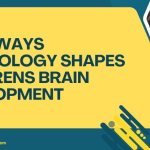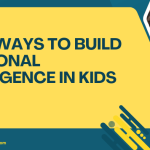Table of Contents
- Introduction
- Sign 1: Delayed Speech and Language Skills
- Sign 2: Poor Problem-Solving Abilities
- Sign 3: Difficulty with Memory and Recall
- Sign 4: Limited Social Interactions
- Sign 5: Trouble with Everyday Tasks
- Conclusion
- FAQs
Introduction
Cognitive development in young children is a crucial aspect of their overall growth. It encompasses their ability to think, learn, and understand the world around them. Parents and caregivers often wonder if their child is developing normally or if there are signs of cognitive delays.
Recognizing these signs early can lead to timely interventions that help children reach their full potential.
In this article, we will discuss the top five signs of cognitive delays in young children to empower you with the knowledge you need.
Sign 1: Delayed Speech and Language Skills
One of the most noticeable signs of cognitive delays is delayed speech and language development. If your child is not babbling by 12 months, saying single words by 16 months, or combining words by 24 months, it may be time to consult a pediatrician.
What to Watch For:
- Limited Vocabulary: Children should have about 50 words by age two.
- Difficulty Formulating Sentences: Struggling to form simple sentences can be a red flag.
- Unusual Speech Patterns: This includes repeating phrases or sounds without understanding.
Language skills are foundational for cognitive development. They enable children to express their thoughts, emotions, and needs.
Delays in speech can hinder the development of other cognitive skills. For further reading, visit the American Speech-Language-Hearing Association for a detailed speech and language development chart.
Sign 2: Poor Problem-Solving Abilities
Children begin to showcase problem-solving skills as early as 12 months. If your child struggles to find solutions to simple problems, it may indicate cognitive delays.
Signs of Poor Problem-Solving:
- Difficulty with Puzzles: Not being able to fit pieces together by age three.
- Inability to Complete Simple Tasks: Such as stacking blocks or matching colors.
- Lack of Curiosity: Not exploring new toys or environments can be a significant sign.
Problem-solving is essential for learning and adapting to new situations.
Children who develop these skills early are often better equipped to handle everyday challenges as they grow. For more insights on cognitive development, you can check the article on Top 5 Lifestyle Changes to Prevent Neurological Disorders for approaches that can support cognitive health.
Sign 3: Difficulty with Memory and Recall
Memory is a crucial component of cognitive development. Children should be able to remember familiar people, places, and events. If your child frequently forgets simple tasks or cannot recognize familiar faces, it could indicate a delay.
Indicators of Memory Issues:
- Forgetting Recent Activities: Not recalling what they did a few hours ago.
- Difficulty Following Directions: Struggling to remember multi-step instructions.
- Lack of Interest in Storytelling: Not recalling characters or events from stories read to them.
Memory helps children learn from experiences and build knowledge.
If memory skills are delayed, it can affect learning in school and social interactions. Learn about the importance of regular check-ups and their benefits in the article on Top 5 Benefits of Regular Neuro Check-Ups for Your Health.
Sign 4: Limited Social Interactions
Social skills are an essential part of cognitive development. If your child struggles to engage with peers, it may be a sign of cognitive delays.
Signs of Limited Social Interaction:
- Avoiding Eye Contact: Not making eye contact during conversations.
- Lack of Interest in Play: Not engaging in play with other children by age two.
- Difficulty Understanding Social Cues: Struggling to read facial expressions or body language.
Social interactions help children develop empathy, communication, and cooperation skills.
Delays in this area can lead to difficulties in forming relationships and navigating social settings later in life. For tips on enhancing social interactions, refer to the article on Top 5 Ways Family Support Enhances Neuro Recovery.
Sign 5: Trouble with Everyday Tasks
As children grow, they should develop the ability to perform everyday tasks independently. If your child struggles with basic self-care or play activities, it may indicate cognitive delays.
Everyday Tasks to Monitor:
- Dressing Themselves: Difficulty putting on clothes by age three.
- Feeding Themselves: Not using utensils effectively by age two.
- Following Routines: Inability to participate in daily routines like brushing teeth or picking up toys.
Independence in everyday tasks fosters self-esteem and confidence.
Children who struggle in this area may need additional support to develop these essential life skills. Explore ways to integrate neuro care into daily routines in the article on Top 5 Ways to Integrate Neuro Care into Wellness Routine.
Conclusion
Recognizing the signs of cognitive delays in young children is vital for ensuring they receive the support they need. If you notice any of these signs in your child, consider reaching out to a healthcare professional for guidance.
Early intervention can make a significant difference in your child’s development and overall well-being.
FAQs
1. What should I do if I suspect my child has a cognitive delay?
If you notice any signs of cognitive delays, consult your pediatrician. They can provide guidance and recommend assessments or interventions.
2. Are cognitive delays common in young children?
While some children may experience delays, early identification and intervention can greatly improve outcomes.
3. What resources are available for parents concerned about cognitive delays?
Organizations like the CDC and Zero to Three offer valuable resources and support for parents.
4. How can I support my child’s cognitive development?
Engage your child in interactive play, read together, encourage problem-solving, and provide a safe environment for exploration. For more strategies, check out the article on Top 5 Strategies for Coping with Learning Disabilities.
5. Can cognitive delays be outgrown?
Many children can catch up with appropriate support and intervention. Early action is key to helping your child thrive.
By keeping an eye on these signs and fostering an environment of support and encouragement, you can play an essential role in your child’s cognitive development journey.






